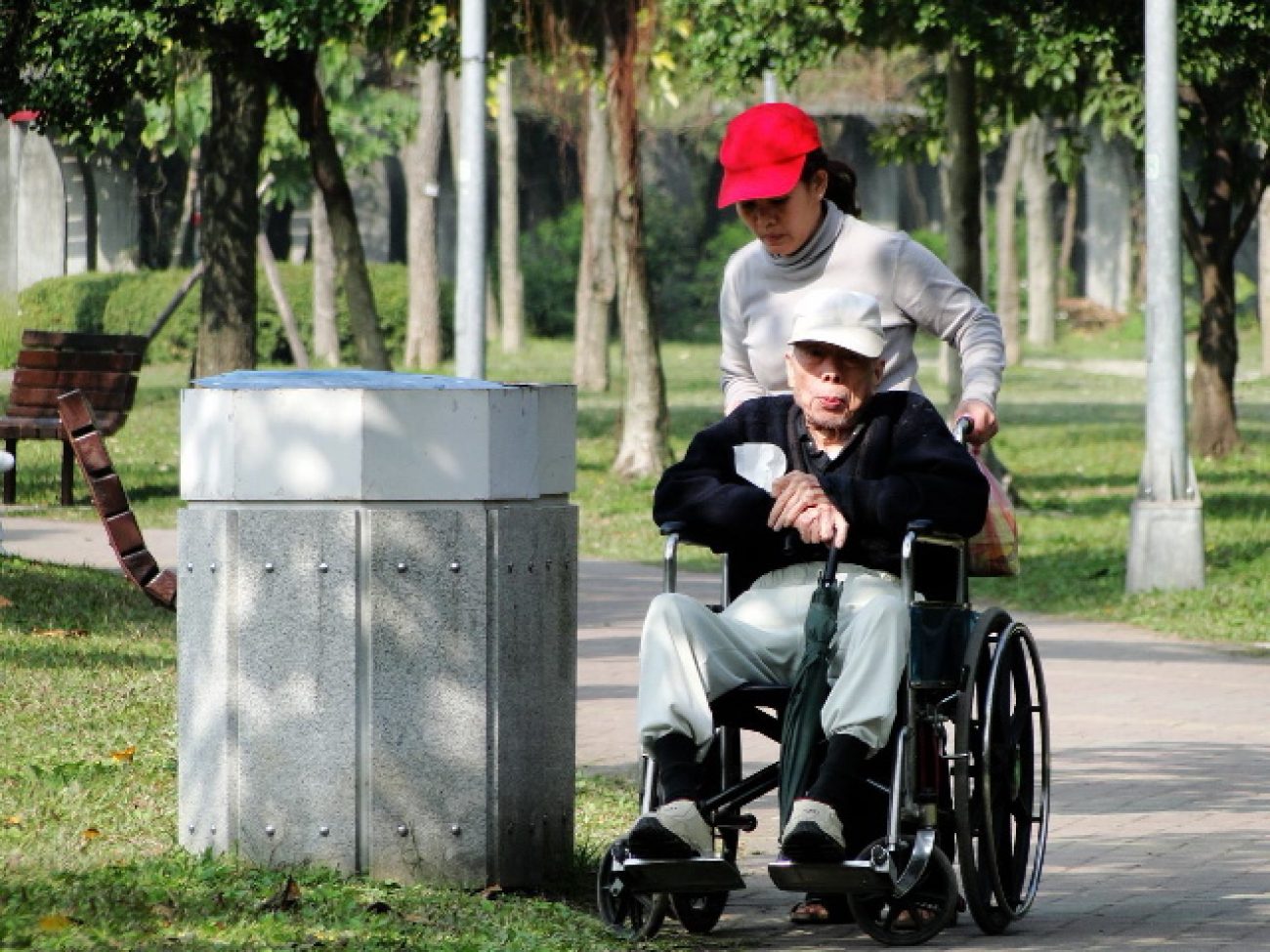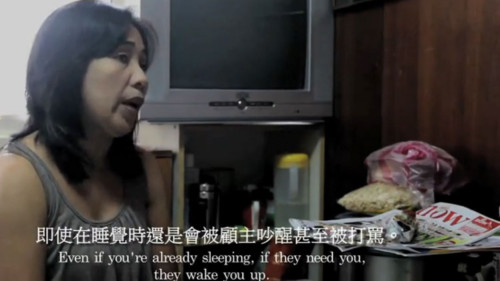Help Filipino and other foreign laborers in Taiwan
Taipei and Manila are currently in crisis mode after a Taiwanese fisherman was shot and killed by the Philippine coastguard on May 9. Most Taiwanese, it seems, are angry about the Philippine government’s response, which the Taiwanese side claims to be insincere. One group that is definitely not guilty, but suffering under the current situation, are Filipino workers in Taiwan.
A group of filmmakers in Taiwan has for a long time been working on a documentary that highlights the many hardships that migrant workers from Southeast-Asian countries often face in Taiwan. Workers, maids and caretakers from the Philippines, Vietnam or Indonesia are sometimes exploited by Taiwanese and have to deal with racist attitudes and other stereotypes. In the past week, there have been media reports about Pinoys being discriminated against and even beaten up as some Taiwanese are apparently carried away by nationalistic fervor.
How you can support „I Have it Maid“
The documentary is called „I Have it Maid“. The filmmakers are currently trying to raise more funds via Kickstarter. The target is US$7000, and there still is some way to go. If you want to support them, you only have time until this Friday, May 24.
Click here to back the project
In this video, you can see that they have already been busy filming interviews, demonstrations and other footage:
You can give as little as one dollar. For US$15, the filmmakers promise you a download of the film when it’s completed. That is the option I just went for. If you want to give even more, you can choose DVDs, T-Shirts, your name in the credits etc.
Read my blog entry about Taiwan’s 2nd class foreigners
I’ve met Alex Wolfgram, one of the filmmakers, personally and have the feeling that he is deeply interested in Taiwan and its society. This will be no film bashing Taiwan. The Taipei Times published an article about Wolfgram and this documentary project.
Discrimination against Filipinos in Taiwan? Current reports
Update: Some media reports turned out to be based on made-up stories
The National Police Agency said (on May 20) that it had received three reports of Filipinos being attacked.
The most recent case involved several Taiwanese youths who attacked a Filipino at his dormitory and damaged property in the dormitory in Hsinchu County on Sunday.
However, the Hsinchu police said that one of the youths claimed that he assaulted the Filipino because he thought he was being laughed at, and that the attack was not incited by the dispute between Taiwan and the Philippines.
(Source)
Want to know more? These are some media reports on the current developments:
- Hau urges public not to blame Filipinos for shooting (May 15)
- President urges people to treat Filipino workers rationally (May 16)
- Filipinos discriminated, harassed in Taiwan (Filipino website, May 17)
- Do not attack Filipinos: rights groups (May 18)
- Immigration officials to raise safety awareness among Filipinos (May 20)
How Taiwan can improve migrant workers‘ conditions
In late February, Taiwan’s government invited a group of reknown international human rights experts to Taiwan. Their mission was to independently review Taiwan’s implementation of the United Nations’ human rights conventions.
While most media coverage was about their criticism of the way the death penalty is executed in Taiwan, the experts in their concluding observations also mentioned the situation of migrant workers:
38. A matter of serious concern is the abuse of rights and the absence of rights of migrant workers in such areas as their recruitment, mostly involving exorbitant brokers’ fees, their almost complete dependence on their employers, and the restrictions on their transfer between employers, the loss of their status as documented workers, and their becoming undocumented with the attendant risk of deportation. Domestic workers are among the most vulnerable of migrant workers in terms of excessive working hours, low wages, and their vulnerability to sexual harassment. It is also a matter of concern that migrant workers, including domestic workers, are not covered by basic labour protection legislation, such as the Fair Labour Standards Act and the Labour Safety and Health Act. Further, it is a serious problem that even the most basic rights which, under international human rights standards, are to be attributed to everyone, and which include in particular the rights to food, housing and health care, are not secured for undocumented workers.
39. The Experts therefore recommend that (i) basic labour protection legislation such as the Labour Standards Act and the Labour Safety and Health Act, be made more inclusive so as to cover migrant workers, domestic workers, and dispatched workers; (ii) the exploitation by recruitment brokers be more closely controlled and abuses penalized; (iii) the rights of migrant workers enabling them to transfer between employers be extended; (iv) the right of everyone, including nationals and non-nationals, documented and undocumented, to enjoy very basic human rights, notably the rights to food, housing and health care, be guaranteed; and (v) proposals to delink the basic wages of foreign workers from those of Taiwanese citizens be rejected as in violation of United Nations and International Labour Organization standards.
About me
I am a German reporter living and working in Taiwan. Read more English posts on this otherwise mostly German blog. You can also follow me on Twitter, Facebook, Plurk, and Google Plus.
English posts you might want to have a look at:
- Police chase away anti-Falun Gong protesters in Taipei
- Taiwanese girls dating Western foreigners. What is a Xicanmei 西餐妹 ?
Das könnte auch interessant sein:
- Cheap labor, no rights? Taiwan’s 2nd class foreigners
- Taiwanese girls dating Western foreigners: What is a Xicanmei 西餐妹 ?
- Die zwei Nachbarn und der tote Fischer: Taiwan und die Philippinen
- Martin Scorsese filming „Silence“ in Taiwan: This is what it’s about
Powered by YARPP.








Eine Antwort
Nur geweckt werden, wenn sie schon schläft, wie die „Maid“ unten im Video ist evtl. schon Luxus. Bei der mir bekannten klingelte alle 30 Minuten nachts der Wecker, damit sie den Pflegefall betreut. Grauslig die Bedingungen.